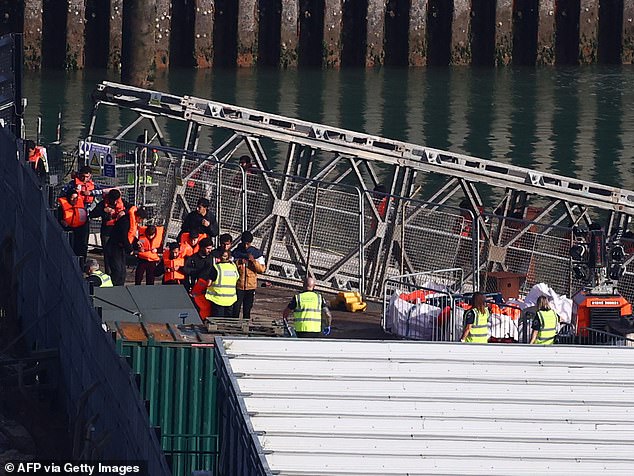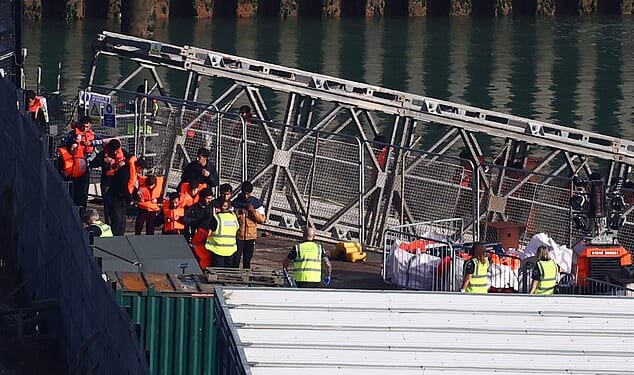The Home Office has been refused permission to challenge a High Court ruling that temporarily blocked an Eritrean migrant’s deportation to France – dealing another blow to Labour’s flailing ‘one in, one out’ deal.
The ruling is another setback to ministers, who have only been able to deport three people under the scheme so far – as the number crossing the Channel so far this year soared past 32,000.
A total of 1,072 migrants made the risky journey from northern France in 13 boats on Friday, suggesting the programme is so far having no effect.
The third asylum seeker sent back was an Iranian man who was returned to France on Friday – a rate of return described as ‘pathetic’ by Shadow Home Secretary Chris Philp.
Officials had hoped to send the Eritrean man to France at 9am on September 17 before a decision by Mr Justice Sheldon to give him 14 days to make representations to support his claim that he was a victim of modern slavery.
Today, lawyers for the Home Office made a bid at the Court of Appeal to challenge the ruling after Shabana Mahmood, the Home Secretary, raged at migrants ‘suddenly deciding that they are a modern slave on the eve of their removal’
Lord Justice Arnold, Lord Justice Lewis and Lady Justice Elisabeth Laing refused to grant permission to appeal, with detailed reasons to follow at a later date.
Lord Justice Arnold said: ‘We have decided to refuse permission to appeal against the judge’s decision.’

Migrants brought ashore at Dover after crossing the Channel over the weekend
In written submissions, Kate Grange KC, representing the Home Office, had said: ‘The Secretary of State for the Home Department contends that the judge erred when he determined that interim relief was appropriate.’
She added: ‘This case raises an issue of compelling public importance given the significance of the policy of removing to France under the treaty and the acute need to prevent and deter small boat journeys across the English Channel.
‘The judge’s decision to grant interim relief, and for such a significant period in the context of this policy, causes real damage to the public interest and undermines a central policy objective.’
In written submissions, Sonali Naik KC told the court that the ‘judge clearly took account of the material factors and gave proper reasons for them in the context of this highly expedited hearing’.
She added: ‘This case should be considered in its own context and on its own facts, and does not have wider significance for others whom the appellant may seek to remove pursuant to the treaty she had entered into with France.
‘This court should not interfere with the judge’s assessment unless it is plainly wrong and the appellant cannot point to any such basis on the material that was before the court or at all.’
Ministers agreed the pilot scheme with the French government in July as part of efforts to deter the record number of arrivals by small boat crossings so far this year.
At least two asylum seekers have been removed from the country under the scheme, including a second Eritrean man who was deported on a flight from Heathrow to Paris after losing a High Court bid on Thursday to halt his removal.
Deputy Prime Minister David Lammy said on Friday that the return deal with France serves as an ‘immediate deterrent’, also describing the pilot as ‘a milestone’.
He also said the Government hoped to see the number of deportations ‘grow over the coming months and years’ as more small boats began making the dangerous journey in the early hours of Friday.












